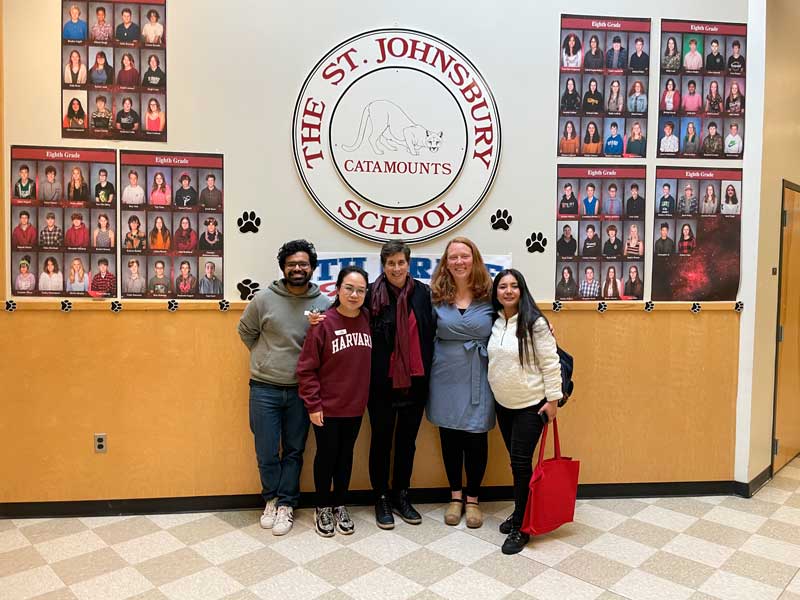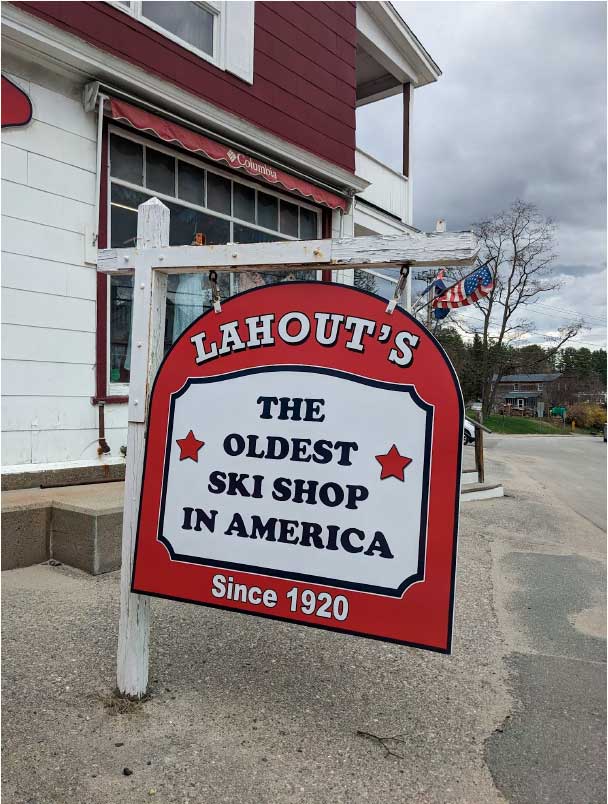
It’s a straight shot from Boston to St. Johnsbury School, also known as home of the Catamounts, a large wild cat or panther. I have known Lydia Cochrane, co-principal here, for a decade. She was part of my inaugural cohort of Perrone Sizer Institute for Creative Leadership (PSi) students (then called CELI) and she has been the PSi principal licensure coach almost ever since. Five years ago, she moved from Chelsea, MA to the Northern Kingdom. Seeing her in her element was wonderful.
I traveled with three of my graduate students from my Building Democratic Schools class at HGSE. They had great questions about mission, vision and values, language and literacy, how decisions are made about budget and programming and the role of outdoor learning. my Rigzen, one of my students who hails from Ladakh, India, said she felt she had come home. She loved the way the mountains welcomed us and the vast playgrounds with young people joyfully playing outside. “I saw a piece of my home on my school trip to St. Johnsbury.”
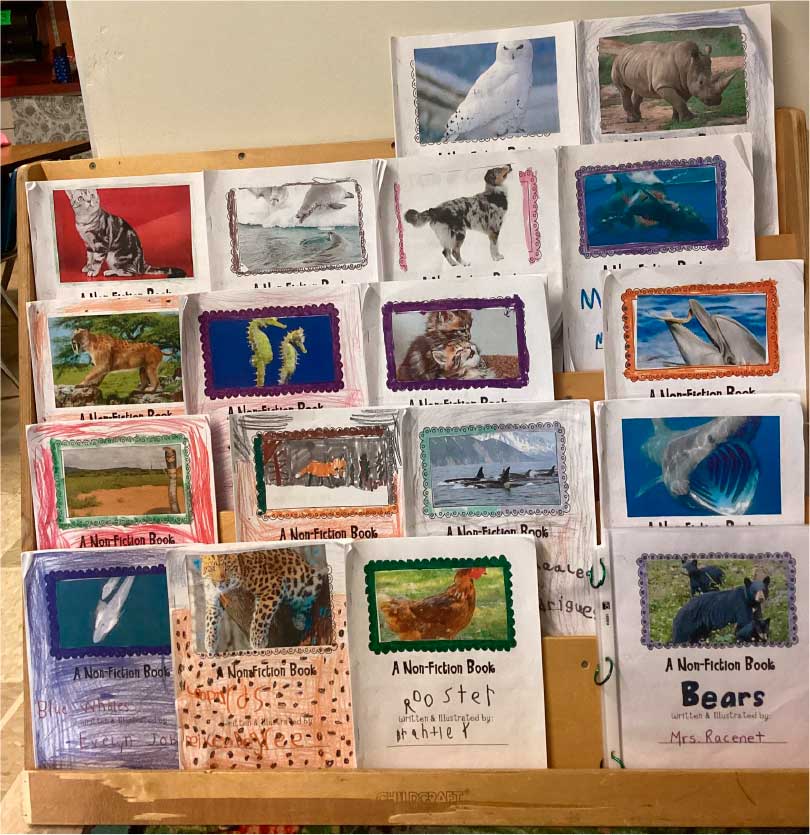
We wandered the school’s hallways and the music and art teacher welcomed us into their spaces. “I am just so lucky to work in this wonderful environment,” the music teacher told us. She spread her arms widely to indicate how pleased she was to have a classroom bursting with instruments. “I can do so much here.” The art room took our breath away: on every surface and corner was student work in various stages of development or completion. The art teacher spoke proudly about all the projects and particularly wanted us to see the portraits her kindergarteners had completed. “We are making stuffies today,” she grinned. We wanted to sit and sew, too. Each of them talked with genuine excitement about the work they do every day.
The library was massive (and there are two– one for preK-3rd and another for 4th-8th which includes a maker space) with inviting seating and brimming with books. The librarian proudly told us about the work she is engaged with and the various ways the librarian is used. For me, always, librarians are the centerpiece of a school and these spaces didn’t disappoint.
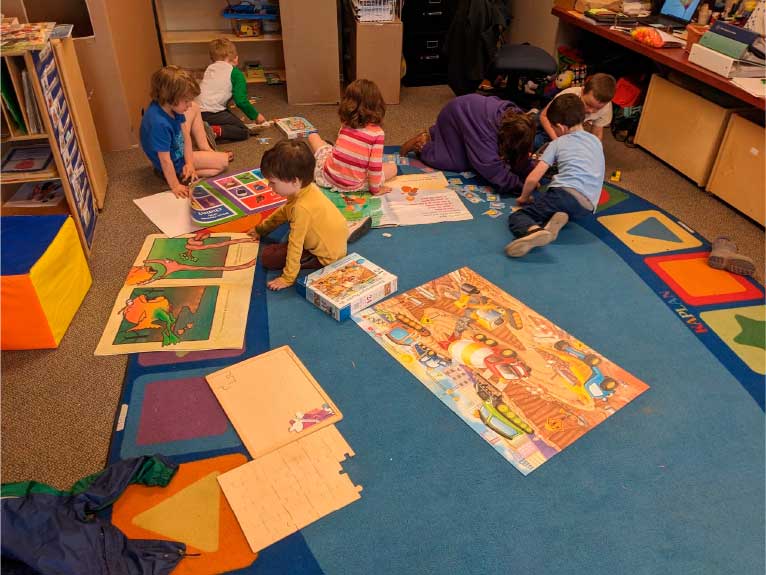
Lydia accompanied us to a preschool classroom where the youngsters and the teacher were also eager to greet us and share their activities. From there, we had a tour of the massive outdoor spaces– playground and fields. Immediately, we saw the potential for limitless outdoor learning. However, Lydia shared that due to lack of resources for adequate clothing and gear, some families and children have developed a mindset that during winter you mostly stay indoors. Although our images of Vermont include skiing and snowboarding, those activities are costly and not accessible to all. Lydia is actively seeking ways to create more opportunities for outdoor learning for all her students.
Our visit to first grade classrooms included lessons in socio-emotional learning (SEL) and a literacy block. In the SEL class, two teachers had combined classes and children were reviewing how to access and appropriately express feelings such as frustration, anger and sadness. The scaffolding (stope, name your feeling, calm down) was impressive as was the student involvement in the activities. Everyone in the room seemed eager to perform a skit to show emotions such as frustration or disappointment and also effective ways to handle those often sticky emotions (breathe, count, use positive talk).
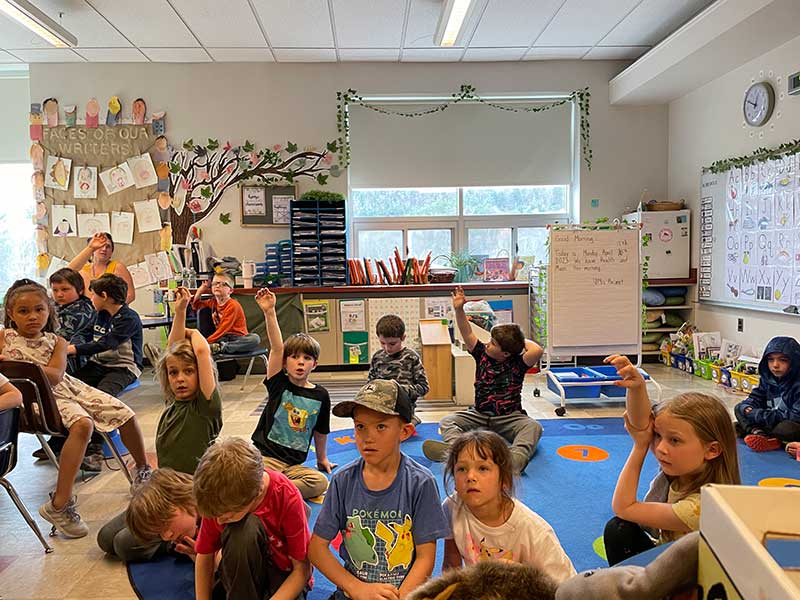
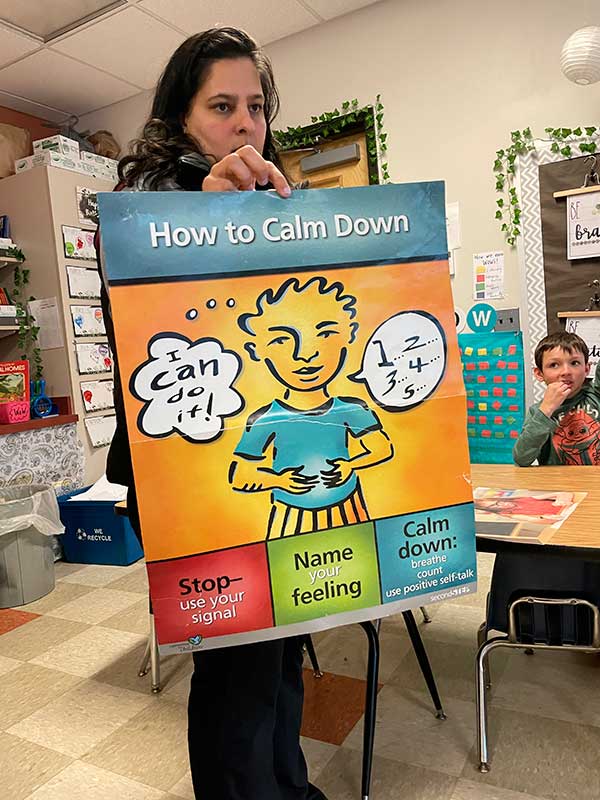
In the literacy block, youngsters were engaged in pair share reading activities while the teacher worked one-on- one. They spilled out onto desks, floor area, comfortable chairs and shared books with one another. The happy buzz of reading was infectious and we all joined in. As I’ve written about before, the issue of how to teach reading also gripped this community and Lydia is empathetic but firm about the shifts. “It’s hard for teachers to go from a method in which they’ve had deep training and that makes sense for them (Fountas and Pinell) to new strategies such as the Science of Reading which prioritizes phonemic awareness. Shifting methods means relearning, letting go of certainty, feeling vulnerable in the classroom– that’s the professional development that lies ahead. All students must achieve foundational reading skills. We need to recognize that over 50% of our students are reading below grade level in 3rd grade. For too many immersive language strategies haven’t worked. There is an urgency to change and learn new methods.” Lydia talked with us about how we now have longitudinal studies about reading and we need opportunities in schools to study that data.
We left deeply impressed by the work that has already been done in this school of 600 students and the work still ahead. Lydia leads with empathy, patience and deep intelligence: a combination of traits that more of us could use!
No trip north is complete without a stop at Chutters or LaHouts!
